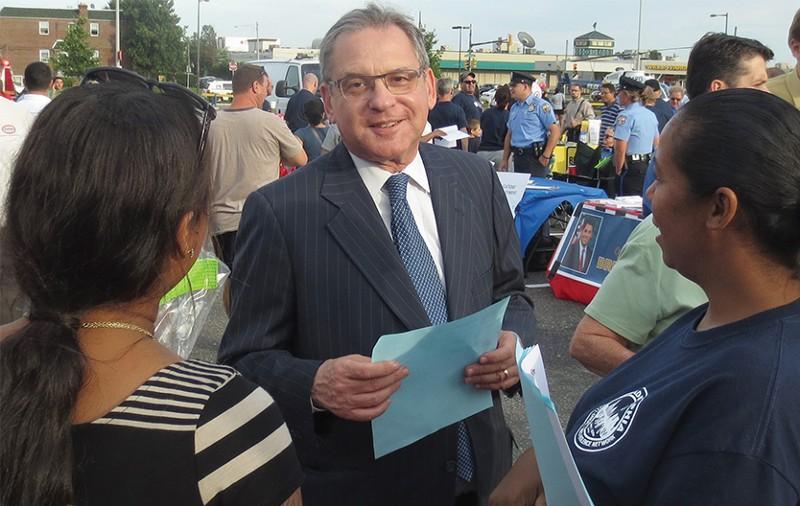New Study Supports Larry Krasner’s Pledge to End Cash Bail in Philly
The City Controller’s report calls on the DA’s office to “dismantle the current cash bail system”

Philadelphia City Controller Alan Butkovitz has released an economic impact study with a startling finding: the city could save $75 million a year by ending cash bail and sending thousands of people arrested each year for nonviolent, low-level crimes home to await their court dates. As its number one recommendation, the report calls on the District Attorney’s office to “dismantle the current cash bail system.”
The study will likely benefit the campaign of Larry Krasner, Philadelphia’s Democratic nominee for District Attorney, who has made ending cash bail a major part of his platform.
According to Butkovitz’ economic analysis, the elimination of cash bail for individuals charged with non-violent and low-level crimes would reduce Philadelphia’s total prison population from more than 6,500 to less than 4,700. This would allow the city to close the Philadelphia House of Correction and the city detention center, thus saving $75 million annually.
The report reads in part: “Research has found current systems can cause more damage on the incarcerated and their families than benefit, whereas alternatives may be just as effective, yet provide better futures for those in the criminal justice system.” Alternative suggestions made in the report for ensuring those charged show up in court range from sending out text message reminders to electronic monitoring.
Eliminating bail and closing jails would also allow Philadelphia to invest more resources in reducing recidivism and reentry programs, according to Butkovitz.
Councilman Curtis Jones has also called for the elimination of bail:
“I think we are at a time in Philadelphia where people are coming to the table sincerely wanting to change the criminal justice paradigm,” Jones said in an interview with PhillyVoice. “We want to get down to like 5,000 [inmates] and we are at 7,500 on average.”
Bail reform can achieve that goal, Jones maintained. Butkovitz agrees, insisting that keeping the current system in place is not only costly, it also unfairly penalizes those lacking financial resources.
“When you consider the cost of housing somebody in a prison, it amounts to about $160 a day for people who have not committed violent crimes and cannot raise the cash to make a low amount of bail,” he said. Moreover, Butkovitz maintains that the logic behind the practice of locking people up to make sure they appear in court is faulty.
“By sending people messages on their iPhones and hounding them into court, just reminding them is having a greater impact than holding their money over their head — particularly when the people who are incarcerated don’t have the money,” he argued, adding that keeping those awaiting trial out of jail allows them to hold onto their jobs and support their families.
If Philadelphia implements the suggestions made in the report, it will join other major cities and states in reforming bail practices. Chicago, Washington, D.C. and New Jersey have largely stopped using money as a condition for release. Court challenges have ended or dramatically altered money bail systems in a number of other jurisdictions around the country, and the movement is gaining nationwide support.
